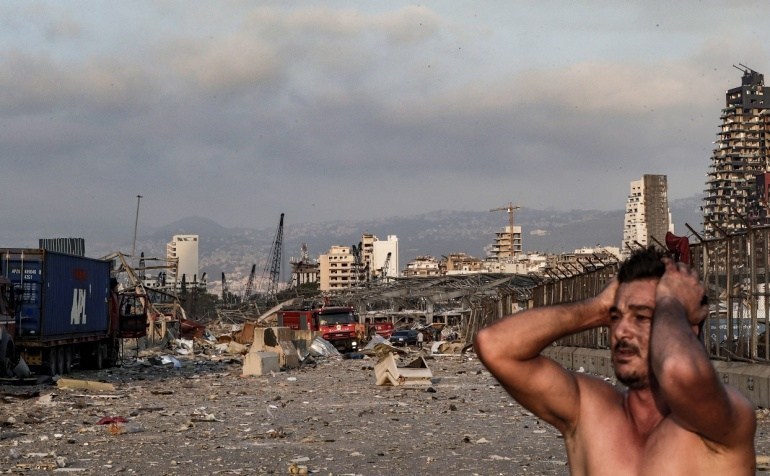The European Commission announced yesterday an additional aid program of about €100 million to Lebanon to address the consequences of the explosion in August in the port of Beirut. The EU will focus the recovery efforts on meeting the needs of the population.
The explosion was caused by 2,750 tons of tons of ammonium nitrate which had been stored in the harbour since 2013 with the knowledge and good memory of the authorities and politicians. It killed some 200 people, wounded more than 3,000 and rendered a quarter of a million people homeless and destroyed hospitals and food storages.
“The considerable additional funds that will be provided will focus on the population and measures to enable them to rebuild themselves,” said Neighborhood and Enlargement Commissioner Olivér Várhelyi. “The EU is counting on the swift formation of a government that will implement the essential reforms that must underpin a broader recovery.”
The € 100 million package includes an amount of € 34 million of bilateral funding for Lebanon which will be redirected to improve governance and accountability, continue to help civil society and restore access to employment and economic opportunities.
New funding of € 64.5 million will be channelled through the EU's regional trust fund in response to the Syrian crisis, which will support the most vulnerable Lebanese and refugee communities affected by the explosion, particularly in the areas of health, social assistance and support for micro and small businesses.
Both amounts will be disbursed from 2021 and the bulk of them is not conditioned on governance reforms of Lebanon. Only an amount of € 4 million to support the government to promote rule of law and fight corruption will depend on the new government’s commitment to reform in this sector.
On December 4, international donors, including the EU, the World Bank Group and the United Nations, launched a Reform, Recovery and Reconstruction (3RF) framework for a people-centered response plan to meet the immediate needs in the aftermath of the explosion.
In addition, the 3RF also aims laying the foundations for a sustainable recovery and long-term reconstruction but funding for the necessary investments are conditional on satisfactory reform progress in the country.
Such reforms are far away judging by the latest political developments in Lebanon. An ambitious judge, Fadi Sawan, has started to investigate the explosion and summoned officials and former ministers. The ministers claimed parliamentary immunity and refused to come. In the meantime, the judge has been forced to suspend the inquiry.
According to the outdated Lebanese constitution, even former ministers can only be tried by a special tribunal after they have been indicted by two thirds of the sectarian Parliament. The establishment of a new government under Sunni Prime Minister – Designate Saad Hariri is also on hold because of a dispute with the Christian President, Michel Aoun, on the appointment of ministers.
A new government would, however, have difficulties agreeing on much-needed political-economic reforms since key decisions must be taken by at least two thirds of the government.
M. Apelblat
The Brussels Times

